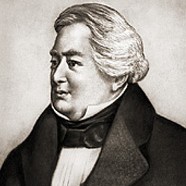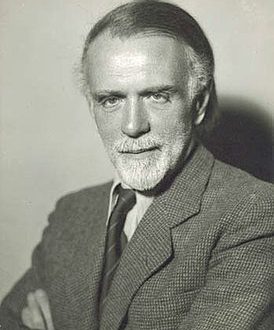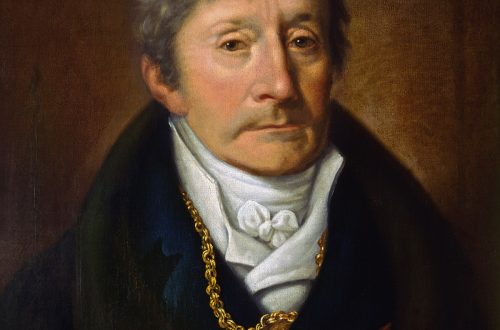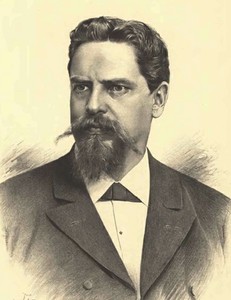
Osip Antonovich Kozlovsky |
Osip Kozlovsky

On April 28, 1791, more than three thousand guests came to the magnificent Tauride Palace of Prince Potemkin in St. Petersburg. The noble metropolitan public, led by Empress Catherine II herself, gathered here on the occasion of the brilliant victory of the great commander A. Suvorov in the Russian-Turkish war – the capture of the Izmail fortress. Architects, artists, poets, musicians were invited to arrange the solemn celebration. The famous G. Derzhavin wrote, commissioned by G. Potemkin, “poems for singing at the festival.” The well-known court choreographer, Frenchman Le Pic, staged dances. The composition of music and the direction of the choir and orchestra were entrusted to an unknown musician O. Kozlovsky, a participant in the Russian-Turkish war. “As soon as the highest visitors deigned to sit on the seats prepared for them, then suddenly voice and instrumental music thundered, consisting of three hundred people.” A huge choir and orchestra sang “Thunder of victory, resound.” The Polonaise made a strong impression. General delight was aroused not only by Derzhavin’s beautiful verses, but also by the solemn, brilliant, full of festive jubilation music, the author of which was Osip Kozlovsky – that same young officer, a Pole by nationality, who arrived in St. Petersburg in the retinue of Prince Potemkin himself. From that evening, the name of Kozlovsky became famous in the capital, and his polonaise “Thunder of victory, resound” became the Russian anthem for a long time. Who was this talented composer who found a second home in Russia, the author of beautiful polonaises, songs, theatrical music?
Kozlovsky was born into a Polish noble family. History has not preserved information about the first, Polish period of his life. It is not known who his parents were. The names of his first teachers, who gave him a good vocational school, have not come down to us. Practical activity of Kozlovsky began in the Warsaw Church of St. Jan, where the young musician served as an organist and chorister. In 1773 he was invited as a music teacher to the children of the Polish diplomat Andrzej Ogiński. (His student Michal Kleofas Oginsky later became a well-known composer.) In 1786 Kozlovsky joined the Russian army. The young officer was noticed by Prince Potemkin. The captivating appearance, talent, pleasant voice of Kozlovsky attracted everyone around him. At that time, the well-known Italian composer J. Sarti, the organizer of musical entertainment beloved by the prince, was in the service of Potemkin. Kozlovsky also took part in them, performing his songs and polonaises. After the death of Potemkin, he found a new patron in the person of the St. Petersburg philanthropist Count L. Naryshkin, a great lover of the arts. Kozlovsky lived in his house on the Moika for several years. Celebrities from the capital were constantly here: poets G. Derzhavin and N. Lvov, musicians I. Prach and V. Trutovsky (the first compilers of collections of Russian folk songs), Sarti, violinist I. Khandoshkin and many others.
Alas! – that’s the hell Where architecture, decoration taste Enthralled all spectators And where, under the sweet singing of muses Kozlovsky was captivated by sounds! —
wrote, recalling the musical evenings at Naryshkin, the poet Derzhavin. In 1796, Kozlovsky retired, and since that time music has become his main profession. He is already widely known in St. Petersburg. His polonaises thunder at court balls; everywhere they sing his “Russian songs” (that was the name of romances based on verses by Russian poets). Many of them, such as “I want to be a bird”, “A cruel fate”, “Bee” (Art. Derzhavin), were especially popular. Kozlovsky was one of the creators of the Russian romance (contemporaries called him the creator of a new kind of Russian songs). Knew these songs and M. Glinka. In 1823, having arrived in Novospasskoye, he taught his younger sister Lyudmila the then-fashionable Kozlovsky song “Golden bee, why are you buzzing”. “… He was very amused how I sang it …” – L. Shestakova later recalled.
In 1798, Kozlovsky created a monumental choral work – Requiem, which was performed on February 25 in the St. Petersburg Catholic Church at the burial ceremony of the Polish king Stanislav August Poniatowski.
In 1799, Kozlovsky received the position of inspector, and then, from 1803, director of music for the imperial theaters. Acquaintance with the artistic environment, with Russian playwrights prompted him to turn to composing theatrical music. He was attracted by the sublime style of Russian tragedy that reigned on the stage at the beginning of the 8th century. Here he could show his dramatic talent. Kozlovsky’s music, full of courageous pathos, intensified the senses of the tragic heroes. An important role in the tragedies belonged to the orchestra. Purely symphonic numbers (overtures, intermissions), along with the choirs, formed the basis of the musical accompaniment. Kozlovsky created music for the “heroic-sensitive” tragedies of V. Ozerov (“Oedipus in Athens” and “Fingal”), Y. Knyazhnin (“Vladisan”), A. Shakhovsky (“Deborah”) and A. Gruzintsev (“Oedipus Rex ”), to the tragedy of the French playwright J. Racine (in Russian translation by P. Katenin) “Esther”. Kozlovsky’s best work in this genre was the music for Ozerov’s tragedy “Fingal”. Both the playwright and the composer in many ways anticipated the genres of the future romantic drama in it. The harsh color of the Middle Ages, the images of the ancient Scottish epic (the tragedy is based on the plot of the songs of the legendary Celtic bard Ossian about the brave warrior Fingal) are vividly embodied by Kozlovsky in various musical episodes – overture, intermissions, choirs, ballet scenes, melodrama. The premiere of the tragedy “Fingal” took place on December 1805, XNUMX at the St. Petersburg Bolshoi Theater. The performance captivated the audience with the luxury of staging, Ozerov’s excellent poems. The best tragic actors played in it.
Kozlovsky’s service in the imperial theaters continued until 1819, when the composer, stricken with a serious illness, was forced to retire. Back in 1815, along with D. Bortnyansky and other major musicians of that time, Kozlovsky became an honorary member of the St. Petersburg Philharmonic Society. Little information has been preserved about the last years of the musician’s life. It is known that in 1822-23. he visited Poland with his daughter, but did not want to stay there: Petersburg had long since become his hometown. “The name of Kozlovsky is associated with many memories, sweet for the Russian heart,” wrote the author of the obituary in Sankt-Peterburgskiye Vedomosti. “The sounds of the music composed by Kozlovsky were once heard in the royal palaces, in the chambers of the nobles and in the houses of an average condition. Who doesn’t know, who hasn’t heard the glorious polonaise with the choir: “Thunder of victory, resound” … Who doesn’t remember the polonaise composed by Kozlovsky for the coronation of Emperor Alexander Pavlovich “Rumor flies like Russian arrows on golden wings” … A whole generation sang and now sing many songs Kozlovsky, composed by him to the words of Y. Neledinsky-Meletsky. Having no rivals. in addition to Count Oginsky, in the compositions of polonaises and folk melodies, Kozlovsky earned the approval of connoisseurs and higher compositions. … Osip Antonovich Kozlovsky was a kind, quiet man, constant in friendly relations, and left behind a good memory. His name will take a place of honor in the history of Russian music. There are very few Russian composers in general, and O. A. Kozlovsky stands in the front row between them.
A. Sokolova





